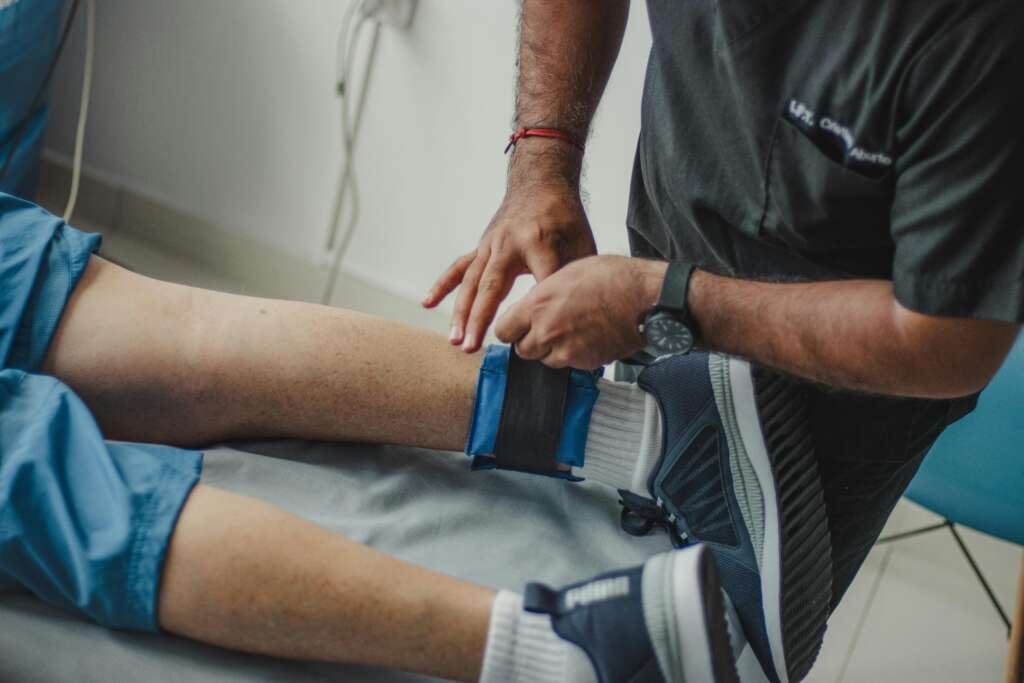Orthopedic care plays a vital role in treating injuries and conditions affecting the musculoskeletal system, which includes bones, joints, muscles, tendons, and ligaments. Whether you’re dealing with joint pain, recovering from a sports injury, or navigating chronic conditions, understanding the basics of orthopedic care can help you make informed decisions. Here are four frequently asked questions about orthopedic care to provide insight into what to expect and how orthopedic specialists can help.
1. What Conditions Do Orthopedic Doctors Treat?
Orthopedic doctors specialize in diagnosing and treating a wide range of musculoskeletal conditions. This includes:
- Joint Pain and Arthritis: Whether it’s osteoarthritis, rheumatoid arthritis, or injury-related joint pain, orthopedists help manage and treat these conditions to reduce pain and improve mobility.
- Sports Injuries: Common injuries such as ACL tears, meniscus tears, sprains, and fractures are often treated by orthopedic specialists. They work with athletes of all levels to create treatment plans that support a safe return to activity.
- Fractures and Bone Injuries: Orthopedic care includes managing simple fractures as well as complex breaks that may require surgical intervention.
- Back and Neck Pain: Issues like herniated discs, spinal stenosis, and sciatica are also within an orthopedic doctor’s expertise.
- Overuse Injuries: Conditions like carpal tunnel syndrome, tendinitis, and bursitis result from repetitive stress and can be treated or managed by orthopedic care.
From joint replacement to physical therapy, orthopedic care offers solutions that focus on both the short-term relief of symptoms and long-term improvement in function.
2. When Should I See an Orthopedic Specialist?
Many people wonder when it’s time to see an orthopedic doctor. Here are a few signs that a consultation may be necessary:
- Persistent Pain: If you’ve had joint or muscle pain that doesn’t improve with rest, ice, or over-the-counter medications, it may be time to see a specialist. Chronic pain lasting longer than three months should especially be evaluated by an orthopedic doctor.
- Difficulty with Daily Activities: If pain or stiffness limits your ability to perform regular activities, such as walking, climbing stairs, or even lifting objects, an orthopedic evaluation can provide solutions to improve your quality of life.
- Injury from Physical Activity: Whether it’s a sports injury or an accident, seeing an orthopedist ensures you receive the right treatment to heal properly and avoid further damage.
- Limited Range of Motion: If you’re unable to move a joint as freely as before, an orthopedist can assess the cause and recommend treatments to restore flexibility.
If you’re experiencing any of these symptoms, an orthopedic doctor can evaluate your condition, diagnose the problem, and recommend a treatment plan tailored to your needs.
3. What Are the Common Treatment Options in Orthopedics?
Orthopedic treatment plans vary depending on the condition, but they often include:
- Physical Therapy: Physical therapy is frequently recommended for orthopedic conditions to strengthen muscles, improve mobility, and speed up recovery.
- Medications: Pain relievers, anti-inflammatory medications, and in some cases, injections (such as corticosteroids or hyaluronic acid) are used to manage pain and inflammation.
- Minimally Invasive Surgery: For certain injuries or conditions, minimally invasive techniques, like arthroscopy, allow for effective treatment with smaller incisions and faster recovery.
- Joint Replacement Surgery: When arthritis or injury severely damages a joint, joint replacement (such as knee or hip replacement) can restore function and relieve pain.
- Lifestyle Modifications: Orthopedic doctors often recommend changes in activity levels, exercises, or modifications in daily habits to support joint health and prevent further injury.
An orthopedic doctor will typically begin with the least invasive options and progress to more intensive treatments only if necessary. This approach ensures you receive the most effective care with the least disruption to your life.

4. How Can I Prepare for My Orthopedic Appointment?
Preparing for your orthopedic appointment can help ensure you get the most from your visit. Here’s how:
- Describe Your Symptoms Clearly: Be prepared to discuss your symptoms in detail, including when they started, how severe they are, and what activities worsen or relieve them. The more information you provide, the easier it is for your doctor to make an accurate diagnosis.
- Bring Relevant Medical Records: If you’ve had previous imaging (like X-rays or MRIs) or have seen another doctor for the same issue, bring those records. This helps your orthopedic doctor get a comprehensive view of your condition.
- List Medications and Supplements: Make a list of any medications, supplements, or vitamins you take, as some may affect your treatment plan.
- Wear Comfortable Clothing: If your appointment is for a joint issue, wearing loose or comfortable clothing can make it easier for the doctor to examine the area.
Being prepared for your orthopedic visit ensures that you and your doctor can work together effectively to create a treatment plan tailored to your needs.
Final Thoughts
Orthopedic care provides specialized solutions to keep you moving comfortably and pain-free. Understanding the basics of orthopedic care, knowing when to seek treatment, and learning about your options are all steps toward maintaining a healthy, active lifestyle. Whether you’re managing a chronic condition or recovering from an injury, orthopedic specialists are here to support your journey back to health.
